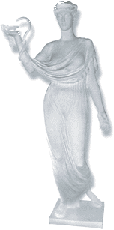

Ministry of Public Health and Social Development of RF
Russian Academy of Medical Sciences
Siberian Branch of Russian Academy of Medical Sciences
Siberian Branch of Russian Academy of Sciences
Medical Polar Fund “Science”
The Northern Forum



|
||

|
International Union for Circumpolar Health Ministry of Public Health and Social Development of RF Russian Academy of Medical Sciences Siberian Branch of Russian Academy of Medical Sciences Siberian Branch of Russian Academy of Sciences Medical Polar Fund “Science” The Northern Forum |
 
|
 |
Seminar Infection Diseases in Arctic
In the past tuberculosis [TB] seriously affected Nunavut communities, families, and individuals socially, culturally and emotionally (Grygier, 1994). TB continues to affect Nunavut today with 25 times more active cases per capita in 2001 than in the rest of Canada (HC, 2003). This research examines how Inuit in Nunavut experience and make meaning of TB, its history, protocols and regimes, and how this and the colonial history of Nunavut influence current levels of TB. The study was ethnographic, conducted through 7 months of fieldwork in 2 Nunavut communities by observation, participant observation, casual conversations, 42 taped interviews, and document review. The interviews were conducted with 29 Inuit community members, and 7 non-Inuit healthcare professionals.
For Inuit participants, performing correct interactions according to social norms and conventions played an important role in the maintaining of health. Many participants reported not discussing disease and other misfortunes, as the interpretation would be that they had brought it upon themselves through transgressions.
Inuit participants expressed preference for a mode of education, including health education, focused on learning through observation, experience and oral transmission. As observed by one participant about health education based on posters and pamphlets, “People are just leaving their stories everywhere and nobody's bothering to read them” (Møller, 2005:29).
Lastly, but perhaps more importantly, the history of colonization, and continuing colonization, play a significant role in the levels of health, disease, and TB in Nunavut.
In this paper I argue that the continuing colonization of Inuit, including the offering of healthcare, health education, and the education of nurses in a Qallunaat mode, sends the message that Inuit culture, values, and ways of thinking are inferior. This continues the acculturative process that historically has taken place in the Church, the schools, and the healthcare system, and that is known to have severe social and health implications (Lane, Boop & Boop, 2003). I submit that it also has a significant impact on levels of TB in Nunavut.
Note. Abstracts are published in author's edition
|
Mail to webmaster
Main page |
© 1996-2005, Siberian Branch of Russian Academy of Sciences, Novosibirsk
Last update: 06-Jul-2012 (11:52:05)